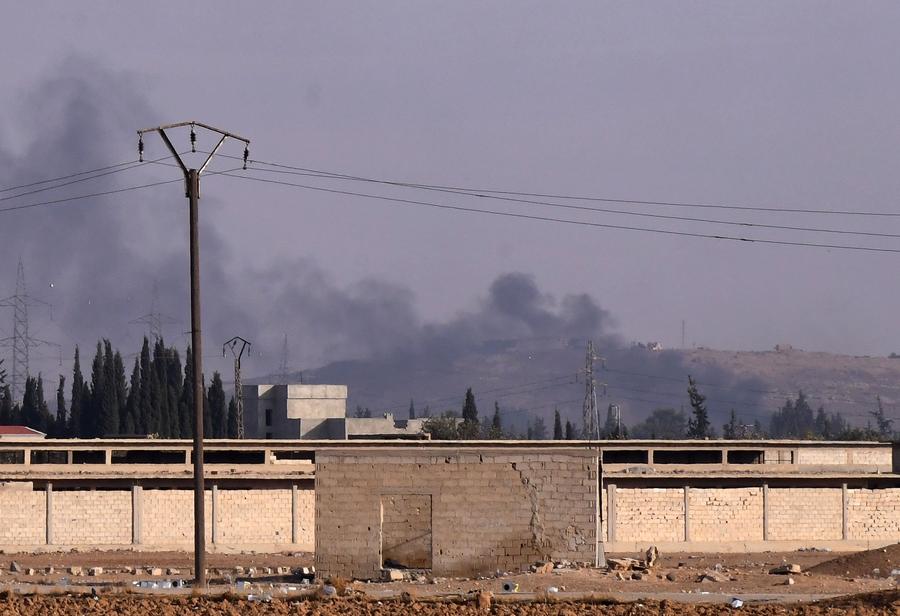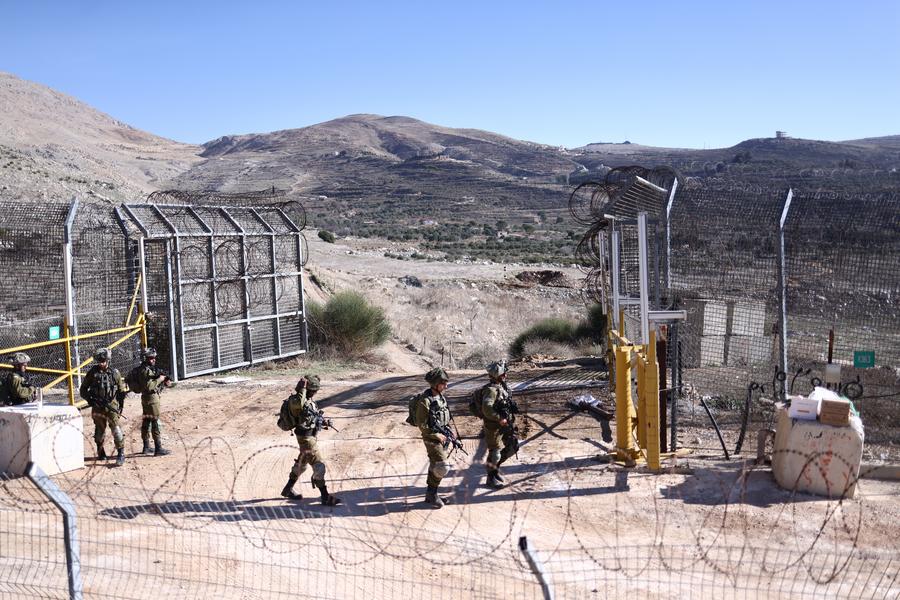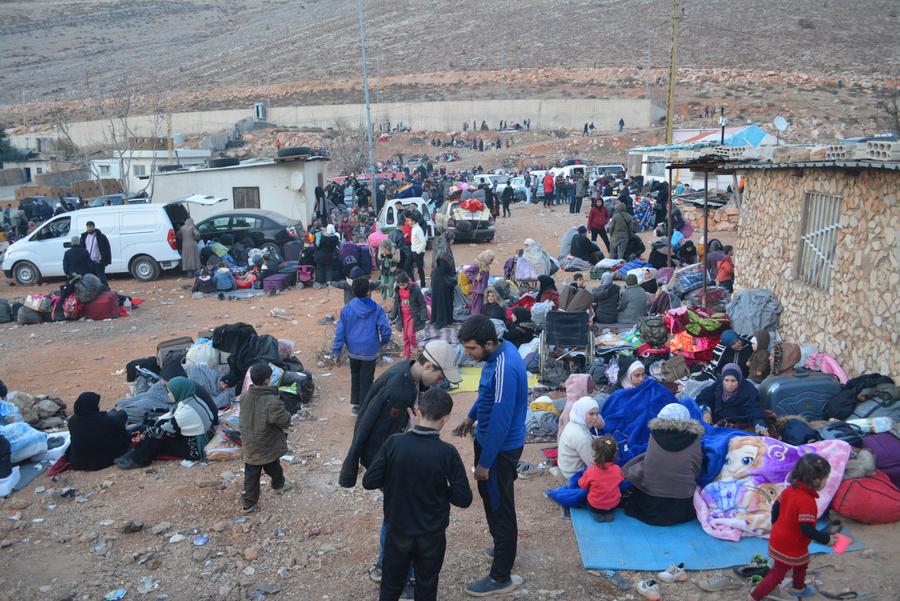
DAMASCUS - Since the downfall of former Syrian president Bashar al-Assad's government on Sunday, Israel has intensified airstrikes across Syria and occupied the buffer zone on the Golan Heights, while the international community has widely condemned Israel's actions and is concerned about an escalating humanitarian crisis.
Latest attacks on Syria
Israeli fighter jets carried out fresh airstrikes late on Friday, targeting at least six military positions in the countryside of Damascus and Sweida provinces in southern Syria, according to a war monitor.
Loud explosions rocked southern Sweida as Israeli jets hovered overhead, hitting areas around Tel al-Qalib and near the village of Al-Kafr, where Syrian military barracks are positioned along the Sweida road, said the Syrian Observatory for Human Rights.
READ MORE: Report: Syrian constitution, parliament suspended for 3 months
Columns of smoke were seen rising from the barracks following the bombings, the Britain-based watchdog group added.
Meanwhile, in rural Damascus, Israeli missiles reportedly struck locations associated with Syria's electronic warfare operations, including Branch 295 and the 1st Regiment under the Electronic Warfare Directorate, as well as fuel depots near the town of Najha, said the observatory.
In addition, residents in the southern Daraa province reported that Israeli warplanes were flying over the Yarmouk Basin in the western countryside, heading eastward.
Concerns among international community
The Arab League (AL) has adopted a resolution condemning Israel's military incursions into the Syrian buffer zone and adjacent positions after an Egypt-initiated emergency meeting, Egypt's Foreign Ministry said on Friday.
The AL resolution emphasized that the disengagement agreement remains effective as per UN Security Council Resolution 350, unaffected by Syria's political upheaval.
ALSO READ: Israel says destroyed over 90% of Syria's surface-to-air missile systems
It urged international pressure on Israel to comply with UN Resolution 497 adopted in 1981, which states that the Israeli exercise of sovereign rights in the Golan Heights is "null and void". The Cairo-based pan-Arab organization also demanded Israel withdraw from occupied Syrian territory.

Iraqi Prime Minister Mohammed Shia' al-Sudani emphasized on Friday the importance of preventing any aggression on Syrian territories by any party, stressing that such actions pose a direct threat to the region's security and stability, according to a statement by al-Sudani's media office.
The Iraqi prime minister reiterated Iraq's stance on supporting Syria during this critical phase and emphasized the importance of assisting the Syrians in rebuilding their state and addressing challenges that could impact their civil peace, said the statement.
ALSO READ: Russia says hopes to keep bases in Syria for 'anti-terrorism purpose'
The Group of Seven leaders on Thursday also issued a statement, calling for respect for Syria's sovereignty and reiterating their support for the UN Disengagement Observer Force in monitoring the Golan Heights between Israel and Syria.
Limited healthcare response
Looting and a lack of staff and medicine are forcing some healthcare facilities to close in Syria amid the fluid security situation, UN humanitarians said on Friday.
The UN Office for the Coordination of Humanitarian Affairs (OCHA) said the United Nations and its partners continue to support the relief response, having resumed activities as security permits.
In northeast Syria, health partners activated more than 20 mobile medical units to handle critical cases and provide primary consultations, the OCHA said.

In the northwest, 30 mobile medical teams provided basic healthcare, vaccinations and maternal care, supported displaced people, and delivered aid including food, tents, winter clothes, hygiene kits and cash.
READ MORE: UN: Over 1.1 million Syrians homeless since recent escalation of hostilities
However, the humanitarians said more support is needed to reach more people and support host communities.
The UN refugee agency (UNHCR) reported that thousands of Syrian refugees have started returning to the country from Lebanon through the Masnaa border point and other border crossings, going back to Idlib, Damascus, Daraa, Aleppo, and other locations. At the same time, some Syrians have fled to Lebanon.
Refugees were also reported returning from Türkiye through the Bab al-Hawa and Bab al-Salam border crossings to northwest Syria.
During the 14-year Syrian conflict and crisis, more than 13 million Syrians have been forced from their homes, according to UNHCR. It has not yet provided official numbers on returnees or the new refugees.
ALSO READ: China calls for halt to Mideast hostilities
"One of the main challenges is that there are no immigration authorities on the Syrian side (of the border)," the UNHCR representative in Syria, Gonzalo Vargas Llosa, told reporters in a telebriefing.
"The immigration officials, who were operating there during the previous regime, all left their positions and the new transitional authorities have not been able yet to establish immigration procedures, which creates, of course, some challenges and difficulties," he said.
The refugee agency said that in the past 72 hours, it has resumed some of its activities in safer areas through local partners, and helped 114 community centers in Syria to provide services to those internally displaced or returning.


